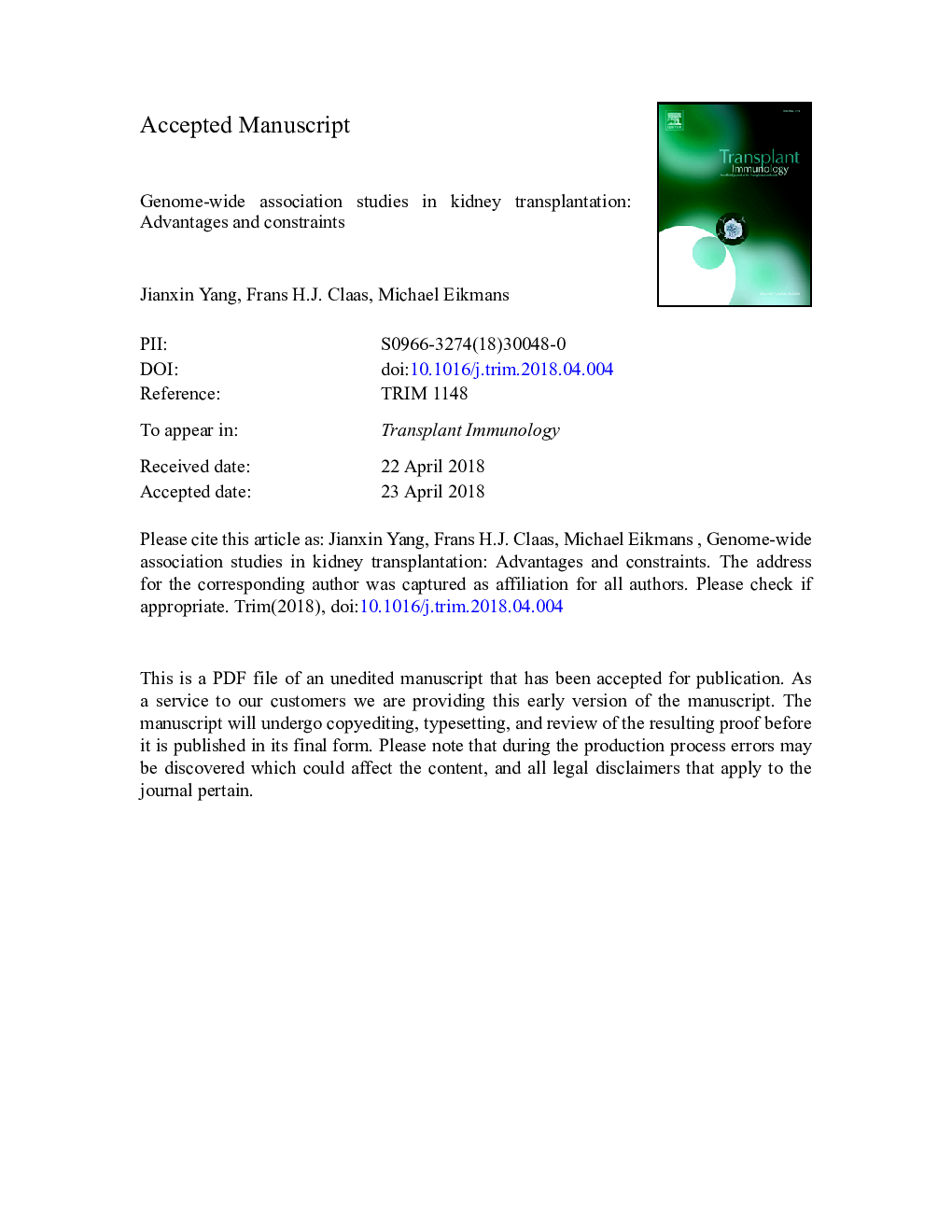| Article ID | Journal | Published Year | Pages | File Type |
|---|---|---|---|---|
| 8743760 | Transplant Immunology | 2018 | 13 Pages |
Abstract
Since the discovery of the human leukocyte antigen (HLA) system, the role of HLA molecules in the field of transplantation has been appreciated: better matching leads to better graft function. Since then, the association of other genetic polymorphisms with clinical outcome has been investigated in many studies. Genome-wide association studies (GWAS) represent a powerful tool to identify causal genetic variants, by simultaneously analyzing millions of single nucleotide polymorphisms scattered across the genome. GWAS in transplantation may indeed be useful to reveal novel markers that may potentially be involved in the mechanism of allograft rejection and graft failure. However, the relevance of GWAS for risk stratification or donor selection for an individual patient is limited as is already reflected by the fact that many parameters, significant in one study, cannot be confirmed in another one.
Related Topics
Life Sciences
Immunology and Microbiology
Immunology
Authors
Jianxin Yang, Frans H.J. Claas, Michael Eikmans,
